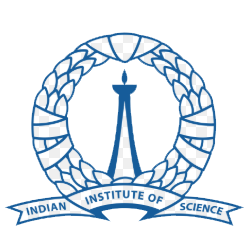

Indian Institute of Science, Bengaluru
Bangalore, Karnataka
The Indian Institute of Science (IISc) was established in 1909, born from the visionary efforts of Jamsetji Tata, the Maharaja of Mysore, and the Government of India. Tata, inspired by Swami Vivekananda, envisioned a world-class scientific research institution in India. With significant land and financial contributions from the Maharaja of Mysore, and expert input from scientists like Nobel Laureate Sir William Ramsay, IISc took shape in Bangalore. It officially started functioning in 1911 with departments like General and Applied Chemistry and Electro-Technology. Over time, the institute evolved into India’s leading research institution and was declared a deemed university in 1958. In 2018, it was recognized as an Institute of Eminence by the Indian government.
Official website https://iisc.ac.in/
Facilities
IISc is located on a lush 400-acre campus in north Bengaluru, designed to support cutting-edge research and holistic student development. The campus includes:
Divisional Flow Cytometry Facility – for advanced cell sorting and analysis.
X-ray Facility – for detailed imaging and diffraction studies.
Advanced Microscopy and Microanalysis Centre – equipped with high-resolution tools for material study.
National Nanofabrication Centre (NNfC) – focused on nanoscale science and technology.
Supercomputer Education and Research Centre (SERC) – home to one of India’s fastest supercomputers (Cray XC40).
In addition to these, the campus offers modern libraries, well-equipped labs, residential hostels, auditoriums, sports complexes, and green spaces for a balanced academic life.
Reputation
IISc is widely recognized as India’s premier institution for scientific research and higher education. It has consistently ranked among the top universities in India and has made its mark globally as well. In 2018, it featured in the top 100 of the Times Higher Education World Reputation Rankings — the only Indian institution in that category at the time.
The institute has been home to several renowned scientists and leaders, including Nobel Laureate C.V. Raman, who founded its Department of Physics, and aerospace pioneer Satish Dhawan. Alumni like Homi Bhabha (father of India’s nuclear program), Sudha Murthy (philanthropist and author), and Kusala Rajendran (renowned seismologist) showcase its broad and lasting impact across disciplines.
